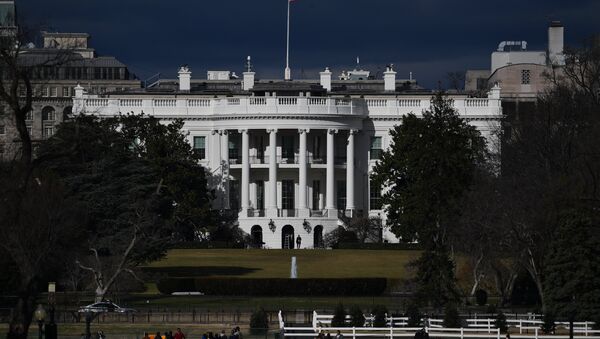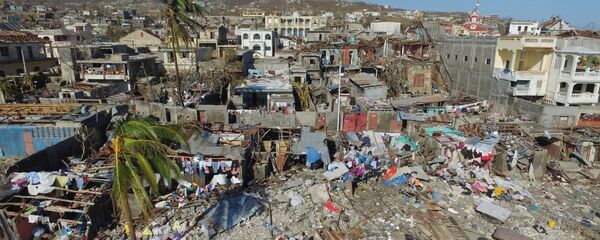According to a letter written by Elaine Duke, acting secretary of the Department of Homeland Security, the "extraordinary conditions" that justified Haitians' TPS status are no longer valid, as the country has taken steps "to improve the stability and quality of life for Haitian citizens."
TPS recipients have been given just 18 months to make arrangements or face deportation by July 22, 2019.
Speaking to Sputnik Radio's By Any Means Necessary, Kim Ives, an editor for Haïti Liberté, says the US decision is a bad move, as conditions in Haiti haven't much improved.
"It's many times worse," says Ives, comparing the state of Haiti now to conditions immediately following the 2010 earthquake. "There are still 40,000 people living under tents or in temporary shelters since the earthquake seven years ago, and the people who have resettled in the outskirts of Port-au-Prince are living in very difficult, temporary, flimsy conditions."
It's not only an apparently misinformed decision, but a cruel one, Ives said, noting that it would mean the likely deportation of US-born children.
Haiti has long been destabilized by its neighbor, the meddling Land of the Free, says Ives, and it's an issue that goes back to the late 1950s when the US "provided all kinds of logistical and military support to the dictatorships" in Haiti.
The dictatorship Ives refers to is that of François "Papa Doc" Duvalier, who served as Haiti's president for life from 1957 to 1971, and also that of his son, Jean-Claude "Baby Doc" Duvalier, who took over his father's role from 1971 to 1986.
"It should be said that all of Haiti's woes, which have caused so many refugees over these years, generally come from US meddling in Haitian internal affairs," Ives said. "And so in many ways, this is the fruit of many years of imperial malfeasance on the part of Washington."
"You see two coups in less than two decades in Haiti and this has basically destabilized the country," Ives told Blackmon, noting that by the time the 2010 earthquake hit, Port-au-Prince was in no position to adequately handle the matter. "The country is just a mess from all the US meddling."
Along with the thousands of Haitians who will likely be deported are 5,300 Nicaraguans facing the same fate. The administration's move is described as part of US President Donald Trump's efforts to tighten immigration restrictions.


